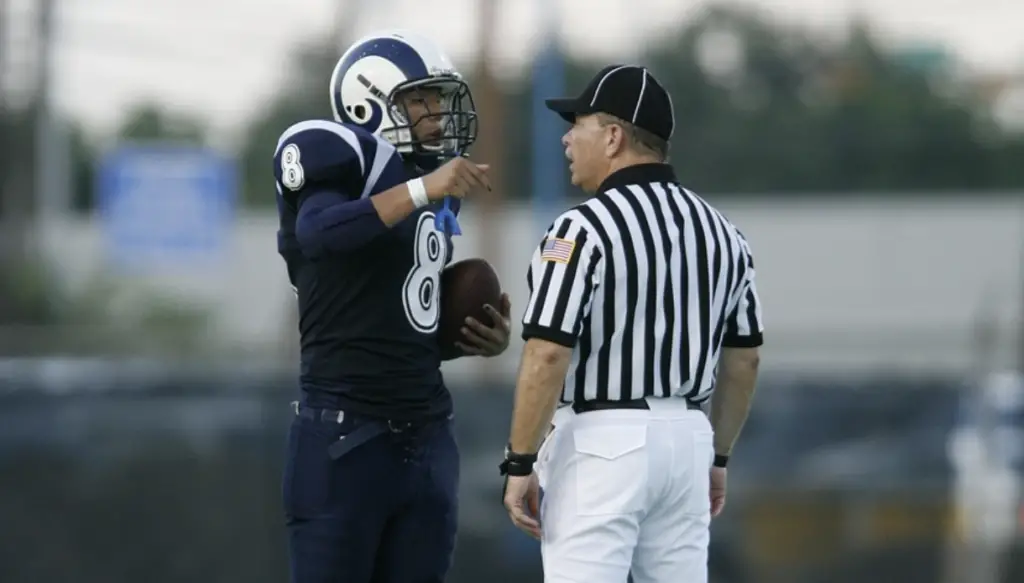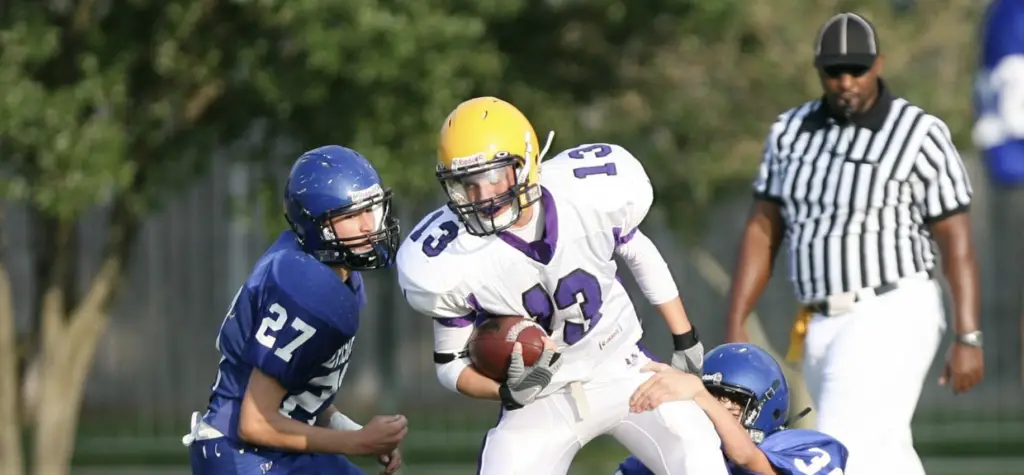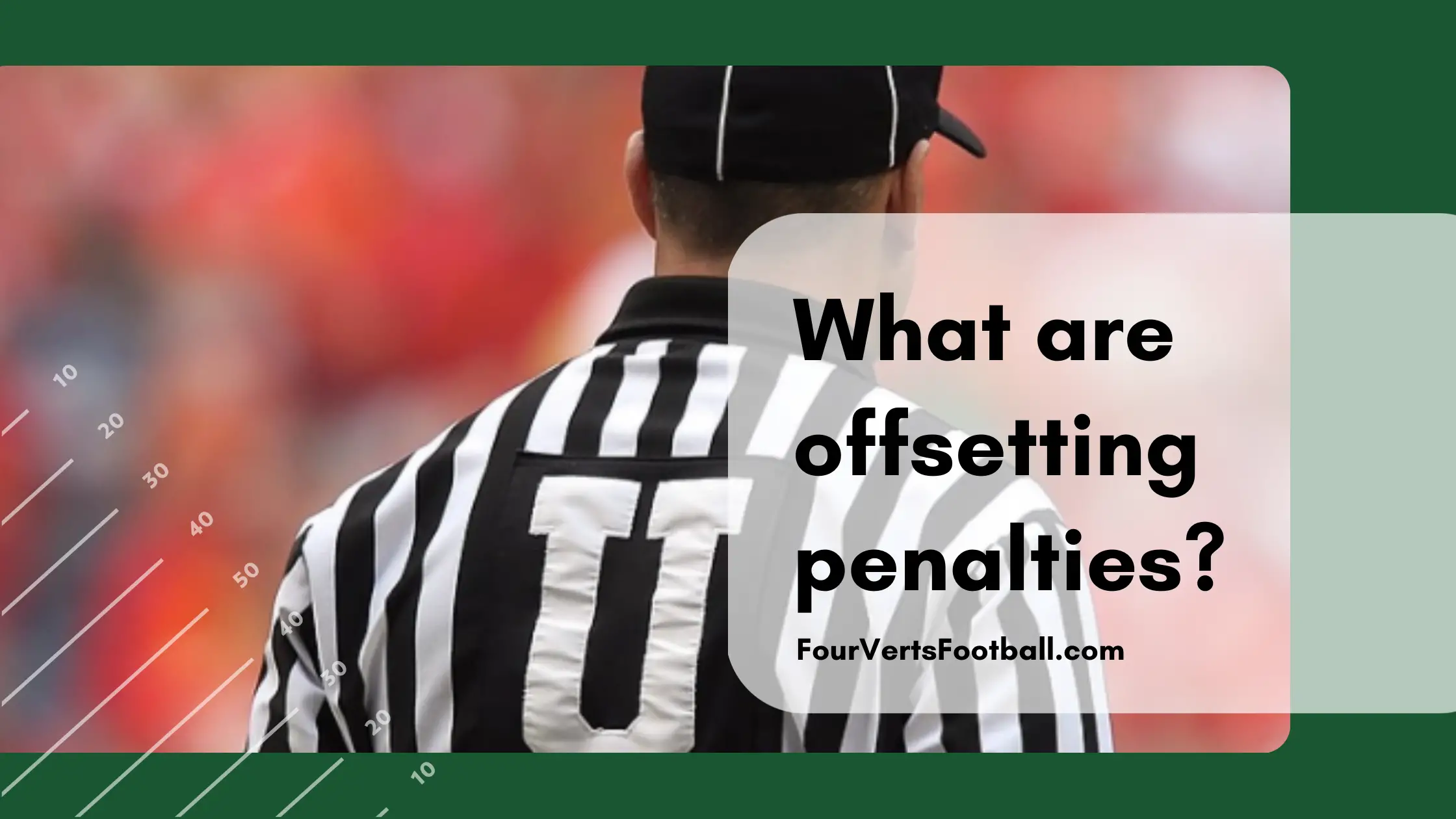Offsetting penalties in football occur when players on both teams commit a foul on the same play. These penalties then cancel each other out resulting in no change of field position and the down is replayed.
There are also some instances in which penalties are valued higher than others. This means they will not offset each other even when they occur on the same play.
When Do Penalties Not Offset

Minor vs Major Penalties
One situation in which penalties would not offset occurs when one team commits a major penalty while the other commits a minor penalty.
For example, say one team commits a fifteen-yard penalty such as a personal foul. This foul will take precedent over any five-yard foul that does not create an automatic first down, is not a spot foul, or loss of down.
This means that if these two fouls meet the criteria mentioned above the five-yard penalty will be disregarded and the fifteen-yard penalty will be enforced.
Excess Timeouts
If your coach uses more timeouts than he has he will receive an automatic five-yard penalty. This means even if the other team commits a penalty at the same time they do not offset.
This is a fairly rare penalty in football as head coaches rarely call a timeout when they have already used their three for the half.
Penalties Before A Turnover
One more instance in which offsetting penalties play a big role is during turnovers.
If the team that recovers the ball and takes possession has committed a penalty before the turnover occurred then they will not maintain possession of the ball even if the other team committed a penalty.
But if the penalty is committed by the offense during the play and the penalty on the defense is a dead ball foul AKA after the play. Then the defense will still receive possession of the ball.
This is because a penalty during the play may have affected the ability of the offense to maintain possession of the ball. While a penalty after the play has no effect on the turnover occurring or not.
Example: A quarterback throws a deep ball that is intercepted but there is a hold on the offense. The defensive player pulls the receiver from the hips allowing the defender to intercept the ball.
Despite two penalties happening the turnover will not count because it occurred after the penalty.
If the defender intercepted the ball and then got a taunting penalty after the play it would be different. This is because taunting is a dead ball foul which means it occurs after the play. Since the penalty was a live ball foul that means the penalties will offset and the down will be replayed.
Though if a dead ball foul occurs the penalties would not offset and the defense would start fifteen yards back from where they intercepted the ball.
Penalty calls cancelling eachother out

Now that you’ve learned about which penalties in football are not going to cancel eachother out you may be wondering why this rule is here in the first place.
The most obvious answer is that if both teams commit a foul the easiest way to rectify the situation is to start the play again. As we covered earlier penalties in football can carry several different degrees of discipline.
Personal fouls for example are always going to cost your team fifteen yards. While many penalties such as offensive holding will cost a team ten yards.
Instead of applying both penalty yardages it is usually easier to call it a wash and restart the play.
It is difficult for the referees to determine if the which penalty had a bigger impact on the play. Trying to determine this is likely going to invite too much speculation on the referees part.
Instead simply saying there is a foul by both teams lets run the play again is often the easiest way to fix the issue.

